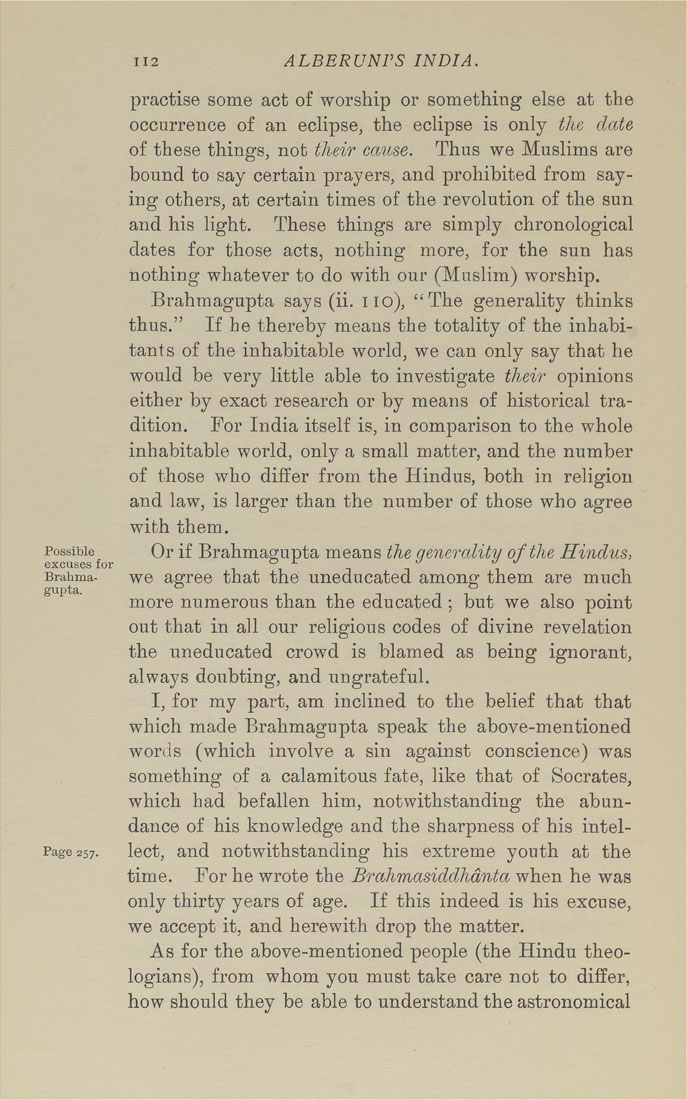112
ALBERUNTS INDIA.
Possible
excuses for
Brahma¬
gupta.
Page 257.
practise some act of worship or something else at the
occurrence of an eclipse, the eclipse is only the clctte
of these things, not their cctuse. Thus we Muslims are
bound to say certain prayers, and prohibited from say¬
ing others, at certain times of the revolution of the sun
and his light. These things are simply chronological
dates for those acts, nothing more, for the sun has
nothing whatever to do with our (Muslim) worship.
Brahmagupta says (ii. no), "The generality thinks
thus." If he thereby means the totality of the inhabi¬
tants of the inhabitable world, we can only say that he
would be very little able to investigate their opinions
either by exact research or by means of historical tra¬
dition. For India itself is, in comparison to the whole
inhabitable world, only a small matter, and the number
of those who differ from the Hindus, both in religion
and law, is larger than the number of those who agree
with them.
Or if Brahmagupta means the generctlity of the Hindus,
we agree that the uneducated among them are much
more numerous than the educated ; but we also point
out that in all our religious codes of divine revelation
the uneducated crowd is blamed as being ignorant,
always doubting, and ungrateful.
I, for my part, am inclined to the belief that that
which made Brahmagupta speak the above-mentioned
words (which involve a sin against conscience) was
something of a calamitous fate, like that of Socrates,
which had befallen him, notwithstanding the abun¬
dance of his knowledge and the sharpness of his intel¬
lect, and notwithstanding his extreme youth at the
time. For he wrote the Brahmasiddhdnta when he was
only thirty years of age. If this indeed is his excuse,
we accept it, and herewith drop the matter.
As for the above-mentioned people (the Hindu theo¬
logians), from whom you must take care not to differ,
how should they be able to understand the astronomical
|








